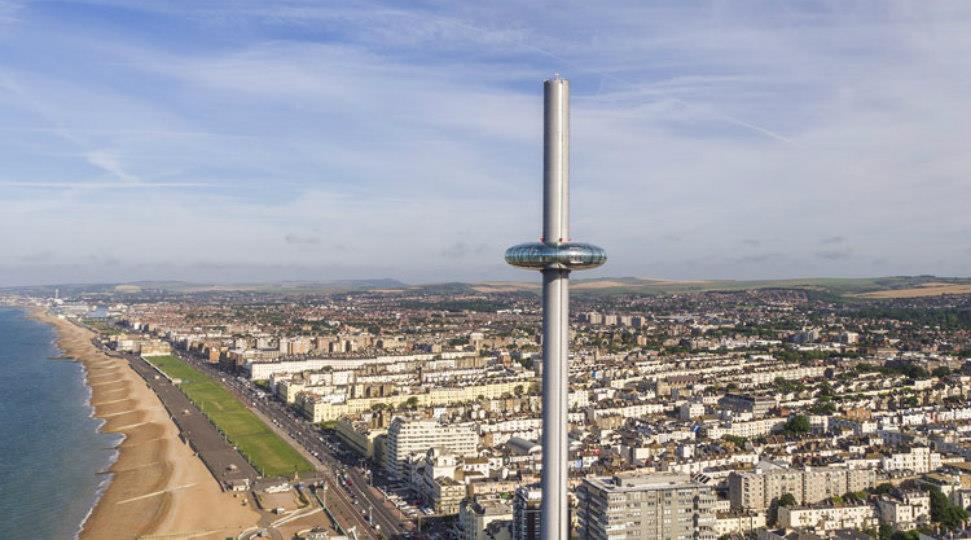Regional political, educational and business leaders are being asked to help employers struggling with bills as the cost of living increases.
The Greater Brighton Economic Board is being asked to back the Business SOS campaign submitted to the government by 300 business improvement districts.
The campaign wants government interventions, including a reduction in the general rate of value-added tax (VAT) to 12.5 per cent from 20 per cent. It also wants VAT on business energy bills cut from 20 per cent to 5 per cent to match the rate on domestic bills.
Other proposed measures include 100 per cent business rate relief until next March and energy rate relief.
A report to the board said that the Institute of Employment Studies (IES) had been commissioned to research the effects of economic turbulence in Greater Brighton.
The institute has been asked to look at
- What councils are doing to support people and businesses
- Businesses’ current and future concerns
- Changes in universal credit and benefits claims
- The effects of the rising cost of living for different demographic groups, sectors and occupations
- The areas at most or least risk
…
The issues range from rocketing bills for energy, food and raw materials to the pound dropping to an all-time low against the dollar.
The research is expected to look at rising costs, higher interest rates and “ongoing uncertainty”.
The report to the board said that inflation stood at 9.9 per cent in August. The energy price cap went up in April and October, with the government capping “typical” household bills at £2,500.
The report said: “Businesses are not protected by the energy price cap in the same way that households are, so are therefore more exposed to changes in the wholesale price of energy.
“Recent estimates suggest that many businesses were facing up to a 300 per cent increase in energy bills this year.”
Last month, the government announced the Energy Bill Relief Scheme to fix wholesale energy prices for six months from the start of this month. Government support for households and businesses could run to £150 billion nationally.
The report also said that government intervention did not deal with continuing higher prices for oil and gas. In May last year, it said, the average price of a litre of petrol was 130.5p a litre but, in June this year, it had risen to 186.6p.
Prices in Sussex had since fallen to about 161.9p a litre which was still more than 20 per cent higher than last year’s level.

The report said: “Additional inflationary pressures stem from the rising prices of food, particularly cereals, bread and meat.
“The cost of raw materials has also increased, impacting the price of furniture and other household items.
“Much of these price rises are caused by the conflict in Ukraine, so much so that in September, the Governor of the Bank of England stated that ‘the Russia shock is now the largest contributor to UK inflation’.
“The war in Ukraine has driven up the cost of crude oil and has resulted in disruption to food (particularly grain) production and distribution through supply chains, which has driven up prices.
“An end to the conflict does not appear near on the horizon so the pressure on prices looks set to continue.”
The Bank of England put up interest rates to 2.25 per cent last month, the highest rate since 2008.
Councils in the Greater Brighton region have already taken some steps to support residents including
- Brighton and Hove City Council – A sum of £2.6 million has been allocated including £2.1 million from the Household Support Fund. The council has updated its website with information on energy support, including links to the Local Energy Advice Partnership for information on support and grants. The council is also developing its Brighton and Hove Warmer Homes programme. And £7.2 million has been earmarked to support energy efficiency improvements.
- Lewes District Council – A total of £750,000 has been committed to support people on low incomes. This includes £150,000 for council tenants and £50,000 to support the food bank. The sum includes £220,000 from the East Sussex County Council Household Support Fund.
- Worthing Borough Council – An action plan is being drawn up to support 12,000 people who cannot afford to feed themselves and their families.
- Crawley Borough Council – A pilot project is under way to support people with complex needs who are in financial crisis.
…
The measures are due to be discussed by the Greater Brighton Economic Board next week. The board is scheduled to meet at the Shoreham Centre, in Pond Road, Shoreham, at 10am on Tuesday (18 October).









BHCC are doing their best to discourage visitors and commerce through the sky high cost of parking in Brighton and the Green sponsored traffic jamming. They don’t care about the financial well-being of residents and businesses – they just hate the motorist.
They could take steps to help, but they won’t, because this goes against their anti car agenda.
Thats what we get when you have transport policy defined by a political party that doesn’t understand business and is obsessively against all private motorised transport. They only listen to bus companies and pro-cycling activist groups.
Just back from a river cruise on the Danube – so great to see integrated options in every city with trains, trams, buses, cycles, cars, and pedestrian precincts, and the acceptance that people do prefer private transport offering on demand, direct A-to-B, all-weather vehicles and the need to work with all of them rather than councils imposing their dogma.
Yes – the council should be cutting parking costs and advertising Brighton.
Cllr Davis is against private motorised transport – but plys his trade as a driving instructor. You couldn’t make it up!